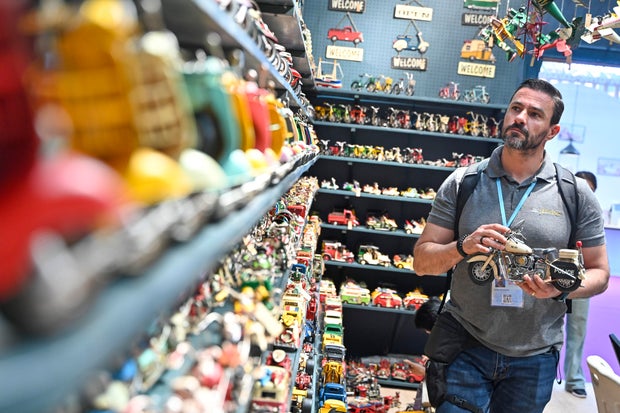Nestled in the bustling city of Guangzhou, China, the Canton Fair, officially termed as the China Import and Export Fair, stands as a monumental beacon of trade and commerce, not just for China but for the global market as well. This massive event, sprawling an area equivalent to around 200 football fields, first opened its gates in 1957—a time when China’s economy bore the brunt of western isolation—an era vastly different from today’s interconnected global economic landscape.
Since its inception, the fair has been the linchpin in China’s plan to interface with the global market, fostering business investments and nurturing oversees interests—in an attempt to circumvent the barriers imposed on it by the West. Over the decades, this strategy, coupled with relentless endeavor, has sculpted China into the world’s manufacturing juggernaut, a status that has recently come under the spotlight and scrutiny amidst renewed moves by the U.S. to isolate China economically.
Under the leadership of President Xi Jinping, China perceives the tariffs imposed by former U.S. President Donald Trump as a tactical maneuver to alienate China again, influencing global allies and their consumer bases to sway their economic loyalties. The sentiment on ground at the Canton Fair reflects these high stakes, as evident from the various stakeholders participating and visiting the fair.
At the recent fair, Richard Qiu, a seasoned businessman and the proprietor of Liaoning Perfect Import/Export Co. Ltd., offered a personal narrative that encapsulated the broader impact of these geopolitical tensions. Donning a pale blue Ralph Lauren shirt, Qiu welcomed CBS News into his booth brimming with colorful fabric gift bags suitable for myriad occasions—from Christmas to birthdays. His openness to engage with the Western media contrasted sharply with other Chinese vendors at the fair, who generally shied away from such interactions.
Qiu’s company, specializing in gift bags, has been a player in the international export scene for over two decades, with a significant share—30-40%—of his exports catering to the U.S. market. His frequent business trips to the U.S. have fostered a strong bond with his American clients and a personal affinity towards American values of freedom and democracy. However, the recent policies under Trump’s administration, particularly the heavy tariffs, have cast a long shadow over his business and personal perspectives on the U.S.
The 145% tariffs on Chinese imports declared by President Trump, although later softened for specific categories like smartphones and some electronics, have led to a drastic downturn in Qiu’s business dealings with the U.S. The majority of his orders have been either put on hold or canceled outright by U.S. buyers, reflecting a stark decline that mirrors the tension at the governmental level.
Elsewhere at the fair, the usually teeming rows of booths with eager American buyers were noticeably sparse. This was echoed by CBS News interviews with various stall owners and attendees who highlighted a significant drop in American participation—a direct fallout from the ongoing trade war. Amidst this backdrop, individuals like Jonathan Scheerz from Michigan, who runs a home wares business, are on a reconnaissance rather than buying mission. Scheerz’s anticipation of a prolonged tariff situation had prompted him to stock up prior to Trump’s presidency, a decision he now reflects upon with a mix of foresight and frustration.
Despite the robust representation of global products and the unmatched pricing that Chinese manufacturers offer, the overarching sentiment among many American businessmen at the fair seemed to oscillate between hope for tariff reductions and a strategic recalibration of their sourcing strategies.
Digging deeper, the repercussions also resonate on a personal level for business owners like Qiu. He revealed plans to diversify his market focus towards Europe, though he remains skeptical about the absorption capacity of these markets compared to the U.S. Describing the current scenario as akin to a war where ordinary people bear the brunt of high-level decisions, Qiu’s narrative paralleled the larger narrative of China’s resilience in the face of adversity—a resilience tested through historical hardships and one that the populace, according to Qiu, is ready to summon once more.
In conclusion, while the Canton Fair continues to be a showcase of China’s manufacturing prowess and a hub for global trade interactions, the prevailing U.S.-China trade tensions have cast long shadows over the proceedings. Businessmen like Richard Qiu personify the immediate impact of these geopolitical shifts—individual stories of adaptation and resilience that collectively mirror the larger narrative of global trade dynamics. These stories, set against the backdrop of the Canton Fair’s vibrant chaos and colossal scale, encapsulate a microcosm of the global economic and political shifts shaping the 21st century.









